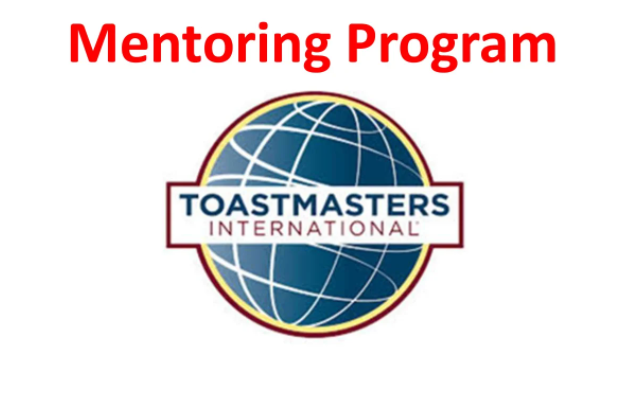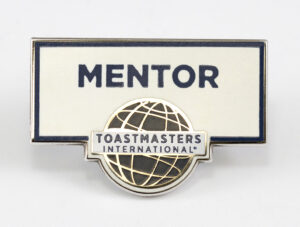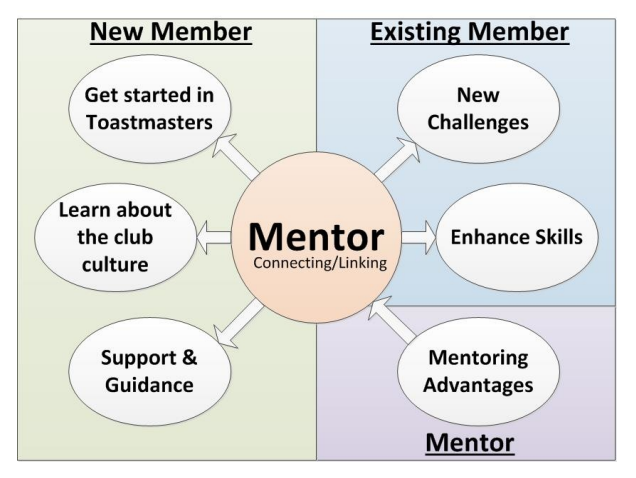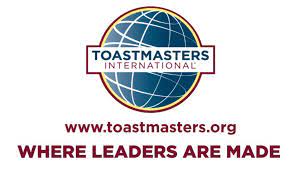Toastmasters International

Mentor-Mentee Program
Toastmasters members have a long history of supporting and nurturing each other through mentorship.
A mentor offers encouragement and guidance to a fellow member of Toastmasters while he or she works to accomplish goals. A mentor has the opportunity to share experience, wisdom, and knowledge while
a protégé gains a foundation for building skills and meeting goals.
Mentoring can be a rewarding experience for both the mentor and the protégé.
Mentoring
A mentor program offers many benefits for your club and its members.
Access the link below to download the manual of Toastmasters Mentoring Guidebook to enhance your understanding about mentoring, its benefits and responsibilities of mentors.
Mentoring Matters
Criteria Qualifying One to Be A Mentor

- Be a member for a minimum of six months
- Have completed mentor training
- Have expertise in the area in which the protégé wants to grow
- Meet with a protégé at least two hours every month for at least six months
Benefits of Mentoring Program
Mentors provide members with help and practical advice, such as tips on preparing speeches and on club roles and responsibilities. They encourage protégés to grow as leaders and offer them reassurance if they hit a rough patch.

What to Look Up in Identifying A Mentor for You?
Take a look at people who can possibly support and mentor you. What qualities do they have and you admire?
- Chances are they were honest with you; if you did well, they told you so. And if you messed up, they told you so.
- You probably got the feeling that they truly cared about you.
- They are interested in you and in your success.
- They understand what you are struggling with.
- A mentor is a friend as well as a teacher and advisor.
What would a Toastmaster Map to Mentoring look like?

Leadership: The Ultimate Mentor
Being a mentor for newer members in a Toastmasters club is one of the organization’s most-challenging, least-defined and often-neglected duties. Yet when done right, it can be one of the most rewarding, fulfilling and beneficial experiences in developing our communication and leadership skills.
- Why be a mentor?
The final step in developing our skills in Toastmasters is learning how to help others become competent communicators and leaders. Being a mentor may seem like it is all for the mentee, but the real benefit comes from knowing we can help someone better their life.
- Apply Toastmasters skills as you mentor others.
As a mentor, observe and listen to your mentee. Speech evaluation develops the ability to give concise and constructive feedback and to inspire a person to continue to improve and achieve. In mentoring, it is more important to find and reinforce what the person is doing right than to find what they are doing wrong. Our actions should inspire them to keep going forward.
- Toastmasters is a process.
Toastmasters – like many of life’s learning experiences – is a process. No one gets 100 percent 100 percent of the time. So as a mentor, your job is to help your assigned person continue to make gradual changes and avoid becoming discouraged.
- Helping them identify and achieve goals.
Help the person to identify and achieve his or her own goals. Be careful not to insert your own agenda, but instead encourage the person to create realistic objectives. Empower the person to think and act.
- Keep the big picture of Toastmasters in mind.
We all have a bad speech, lose a contest, or receive a negative speech evaluation. These can be upsetting, invalidating and discouraging. Help the person you mentor to keep the big picture of Toastmasters in focus. Toastmasters is a learning process, for everyone – including speakers, judges and speech evaluators. There is always something to learn from the experience. No matter how tough it may seem, the program prepares us to handle life outside of Toastmasters.
- Toastmasters works if it is fun and friendly.
Keep it fun and friendly for the person you mentor. Watch their body language. Be alert for any negative issues they might experience, and help the person tackle them.
- It is okay to not know an answer.
Keep it fun and friendly for the person you mentor. Watch their body languaYou don’t have to have an answer for every question. Be honest, caring, interested and willing to make a mistake.ge. Be alert for any negative issues they might experience, and help the person tackle them.
The ultimate benefit of Toastmasters membership is becoming someone who can help someone else become a competent leader and communicator. Are you ready to put these points into practice and discover this for yourself?

